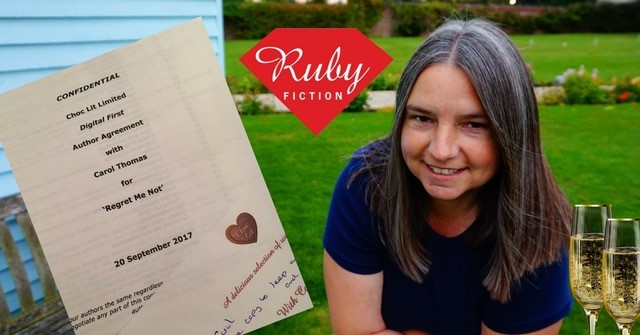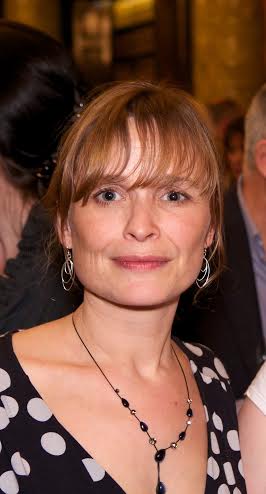I’d like to start this post by saying thank you to my fellow Chindi Author and friend Jane Cable for inviting me along to share the experience of getting my first publishing contract. She has left me to it, so I am titling this piece Fiction, Friends and New Beginnings and dedicating it to Jane.
This week, I have been delighted to announce that my next novel, currently titled Regret Me Not, will be published by Ruby Fiction – a new imprint of the award-winning independent publishers Choc Lit.
The deal came as a result of attending a Choc Lit live event and pitching to an editor in May 2017. I had never imagined pitching face to face, and probably never would have, had it not been for a conversation Jane and I had just weeks before.
Jane had read my debut novel, Crazy Over You, and said my writing style was well suited to Choc Lit. She told me (in a lovely polite Jane way) I should stop thinking about it and get on and submit to them. With her words in mind, I put my name down for a pitch slot. I then spent a week researching how to pitch, preparing what to say and generally panicking.
I needn’t have worried. Jane accompanied me to the event and shared a fortifying tea and cake before the pitch. The live event was great, and the authors were lovely, as I knew they would be. I have followed Choc Lit for several years and have enjoyed meeting the authors and building online relationships with them since the start of my writing journey. And Choc Lit editor, Lusana Taylor, quickly put my nerves to rest and got me chatting about my book and online presence. At the end of my session, Lusana requested I send my manuscript into the Choc Lit tasting panel (a panel of readers who give feedback before publishing decisions are made).
Three months later I got a call from Lyn Vernham, director of Choc Lit, who said they wanted to moveforward with publishing my book and that it would be one of the first books to be published under the new imprint, Ruby Fiction. I signed my contract a week later.
And so exciting times are ahead. I am told the title of my novel will change, and I await the first glimpse of the cover. All of which is new to me; as a previously self-published author, I have made my own decisions about titles and used my own illustrator for covers. I am keen to see how the publisher and the cover designer will interpret my book and I can’t wait to be able to share it.
I am thrilled to be starting this new phase of my writing journey with Ruby Fiction – along with Angela Barton and Caroline James who have also recently been signed.
I know that as I begin promoting my book, I will have the support of the fantastic team of Choc Lit authors whose online response to Ruby Fiction has been warm and welcoming, the support of my new Ruby Fiction family and, of course, my fellow Chindi Authors by my side. Without Jane Cable’s friendly nudge in the right direction (that’s the polite way to put it), I might have missed this great opportunity. New beginnings are exciting, but even more so when you have good people by your side. Thank you Jane x
To follow Carol Thomas’ journey to publication visit:
www.carol-thomas.co.uk
http://facebook.com/carolthomasauthor
http://twitter.com/carol_thomas2
www.chindi-authors.co.uk



